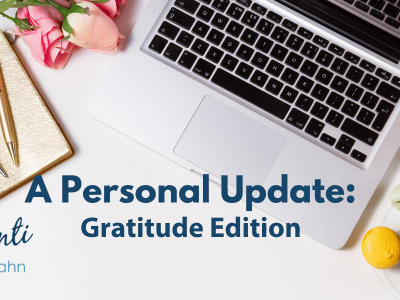In the United States, approximately 40 to 50 percent of marriages end in divorce, and the rates for subsequent marriages are even higher. This staggering statistic underscores the reality that many relationships, despite the best intentions, do not last forever. The end of a relationship, whether it’s a marriage or a long-term partnership, can be a tumultuous and emotionally draining experience. It’s a journey that requires recognizing the warning signs, understanding the emotional toll, and learning to communicate effectively during the separation process.
Moreover, it’s not just about the emotional aspects; there are legal considerations to navigate as well. The aftermath of a breakup also calls for a focus on self-care and healing, as well as rebuilding one’s life and embracing the possibility of future relationships. This article will delve into these critical aspects, providing a comprehensive guide to navigating the end of a relationship.
We will explore the complexities of identifying a failing relationship, the emotional impact of a breakup, and the importance of effective communication during this challenging time. We will also shed light on the legal intricacies involved in ending a relationship and provide practical strategies for self-care and healing post-breakup. Finally, we will guide you on how to rebuild your life after a relationship ends and prepare for future relationships.
This article is not just for those currently going through a breakup, but also for those who want to understand the process better, whether to support a loved one or prepare for potential future scenarios. So, buckle up and join us on this journey of understanding, healing, and growth.
1. Recognizing the Signs of a Failing Relationship
It’s crucial to be aware of the subtle and not-so-subtle signs that your relationship may be on the rocks. Consistent negative interactions, such as constant arguing or bickering, can be a clear indicator that things are not going well. Other signs include a lack of communication, feeling distant or disconnected from your partner, and a decrease in physical intimacy. It’s also important to note that if you or your partner are consistently unhappy, it may be time to reevaluate the relationship.
Tip sheets can be incredibly useful in helping you identify these signs. They provide a concise and easy-to-understand guide on what to look out for in a failing relationship. For instance, if you find yourself constantly feeling drained after interactions with your partner, or if you’re always walking on eggshells around them, these could be red flags. Remember, recognizing these signs early on can save you from a lot of pain and heartache in the long run.
Understanding the Emotional Impact of a Breakup
Experiencing a breakup can often feel like a tumultuous emotional rollercoaster. The end of a relationship can lead to a myriad of emotions, ranging from sadness and confusion to anger and relief. It’s important to acknowledge these feelings and understand that it’s perfectly normal to experience them. The emotional impact of a breakup can be profound and can sometimes lead to depression or anxiety. It’s essential to seek help if these feelings become overwhelming. Remember, it’s okay to grieve the loss of the relationship, but it’s also important to focus on self-care and healing. In conclusion, understanding the emotional impact of a breakup is a crucial step towards recovery and moving forward.
3. How to Communicate Effectively During a Breakup
Breaking up is never easy, but the way you communicate during this time can significantly impact the process. Effective communication is key to ensuring both parties understand the reasons for the breakup and can move forward in a healthy way. It’s essential to be clear, honest, and respectful, even when emotions are running high. Remember, the goal is not to hurt the other person but to express your feelings and thoughts about the relationship.
One of the most important aspects of effective communication during a breakup is listening. While it may be tempting to focus on your own feelings and reasons for ending the relationship, it’s equally important to listen to your partner’s perspective. Active listening shows respect for their feelings and can help both of you gain closure. Avoid interrupting or dismissing their feelings, and try to understand their point of view.
In conclusion, effective communication during a breakup involves being clear and honest, showing respect for the other person’s feelings, and actively listening to their perspective. While this can be challenging, it’s crucial for both parties to move forward. Remember, the end of a relationship doesn’t have to be a battle. With effective communication, it can be a respectful and mutual decision that leads to personal growth and healing.
4. Navigating the Legal Aspects of Ending a Relationship
When a relationship concludes, particularly a marriage, there are often legal implications that need to be addressed. It’s not just about emotional healing, but also about understanding and dealing with the legalities that come with the dissolution of a partnership. Legal aspects can include division of assets, child custody, and alimony, among others. These issues can be complex and emotionally draining, and it’s crucial to approach them with a clear mind and a well-defined plan.
Engaging a competent attorney can be invaluable in navigating these legal waters. They can provide advice and guidance, ensuring that your rights are protected and that the process is as smooth as possible. Remember, every situation is unique, and what worked for someone else might not work for you. It’s essential to get legal advice tailored to your specific circumstances. While the legal aspects of ending a relationship can be daunting, with the right support and advice, you can navigate them successfully.
5. Self-Care Strategies for Post-Breakup Healing
Recovering from a relationship’s end can be a challenging process. However, prioritizing self-care can significantly aid in healing and moving forward. Self-care is not just about pampering yourself; it’s about taking care of your mental, emotional, and physical health. Here are some strategies that can help:
- Maintain a healthy lifestyle: Regular exercise, a balanced diet, and adequate sleep can help manage stress and improve mood.
- Practice mindfulness: Activities like meditation, yoga, or simply spending time in nature can help you stay present and focused.
- Seek support: Don’t hesitate to reach out to friends, family, or a mental health professional. It’s okay to ask for help when you need it.
Another essential aspect of self-care after a breakup is allowing yourself to grieve. It’s normal to feel a range of emotions, and it’s important to let yourself feel them rather than suppressing them. Journaling can be a helpful tool for processing these feelings. Additionally, try to engage in activities that you enjoy and that make you feel good about yourself. This could be anything from reading a good book to taking a trip to a place you’ve always wanted to visit. Remember, it’s okay to take time for yourself and to do things at your own pace.
6. Rebuilding Your Life After a Relationship Ends
Enduring the end of a relationship can be a challenging phase in anyone’s life. However, it also presents an opportunity for personal growth and self-discovery. Rebuilding your life after a relationship ends is not just about moving on; it’s about learning from the past, embracing the present, and shaping a future that aligns with your individual goals and values.
One of the significant advantages of this rebuilding phase is the chance to rediscover your individuality. Often, in relationships, we tend to compromise and sometimes lose sight of our own identities. Now is the time to rekindle old hobbies, pursue new interests, and invest in personal development. However, it’s essential to acknowledge the potential drawbacks. The process can be emotionally draining, and feelings of loneliness and isolation may surface. It’s crucial to remember that these feelings are temporary and part of the healing process.
Another benefit of rebuilding your life after a relationship ends is the opportunity to reassess your relationship goals. This introspection can provide valuable insights into what you truly want in a partner and a relationship. On the downside, this period of self-reflection can also bring up painful memories and emotions. It’s important to face these feelings head-on and seek professional help if necessary. Remember, it’s okay to ask for help, and doing so is a sign of strength, not weakness.
7. Moving Forward: Embracing Singlehood and Preparing for Future Relationships
Stepping into the realm of singlehood can be a daunting yet liberating experience. It’s a time to rediscover oneself, to set new goals, and to embrace the freedom that comes with being single. Embracing singlehood is not about being alone, but rather about being comfortable with oneself. It’s about learning to enjoy your own company and finding happiness within yourself. This period of self-discovery can be a powerful tool in preparing for future relationships, as it allows you to understand what you truly want and need from a partner.
As you navigate through this journey, there are several steps you can take to prepare for future relationships.
- Firstly, it’s important to reflect on past relationships and identify any patterns or behaviors that may have contributed to their end. This introspection can provide valuable insights and help you avoid making the same mistakes in the future.
- Secondly, take the time to work on personal growth. This could involve developing new hobbies, pursuing a career goal, or simply working on becoming a better version of yourself.
- Lastly, learn to be comfortable with being single. This means not rushing into a new relationship just for the sake of being in one, but rather waiting for the right person who complements you and your life.
Preparing for future relationships is not about finding someone who completes you, but about finding someone who complements the complete person you have become.








